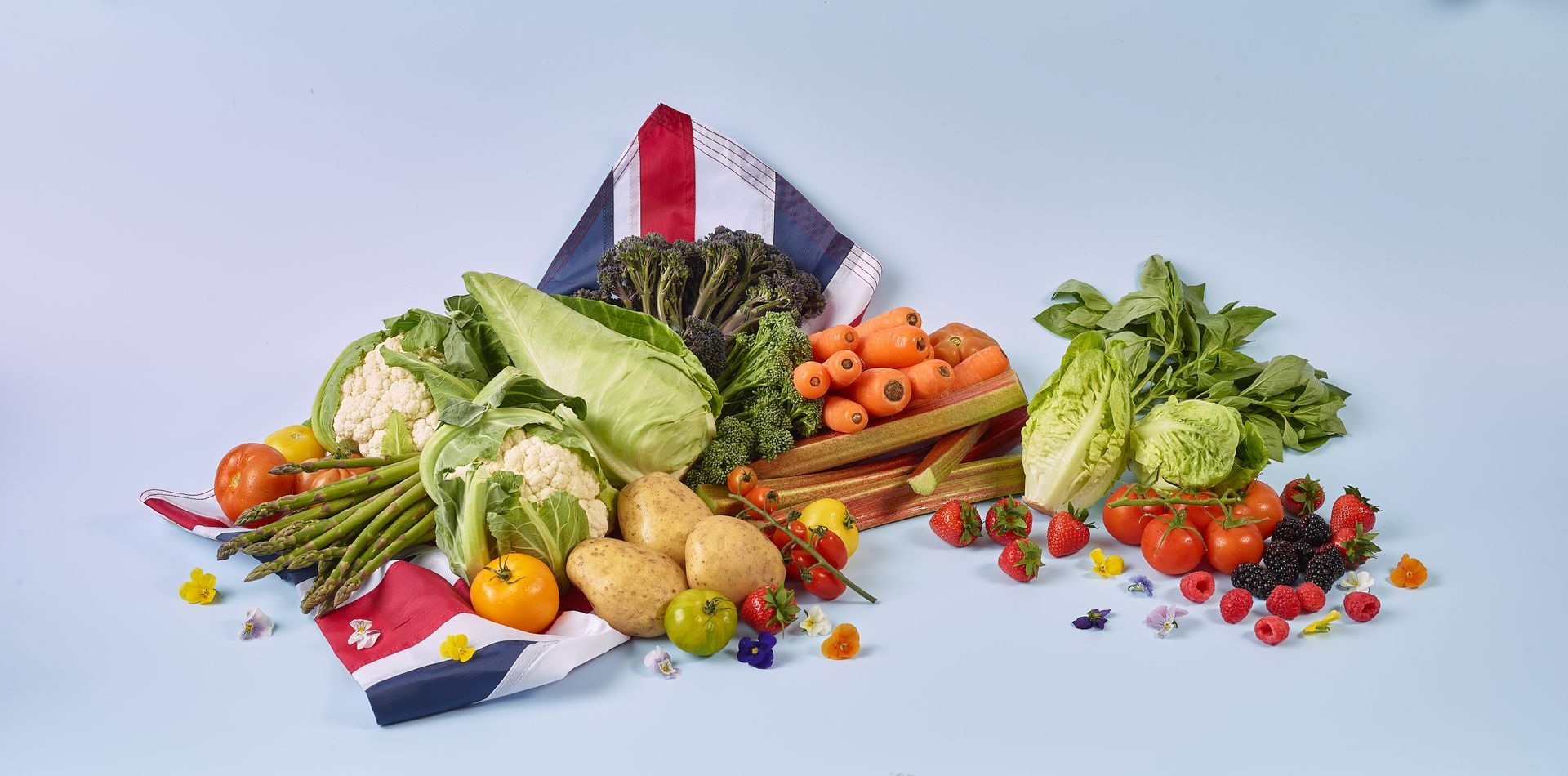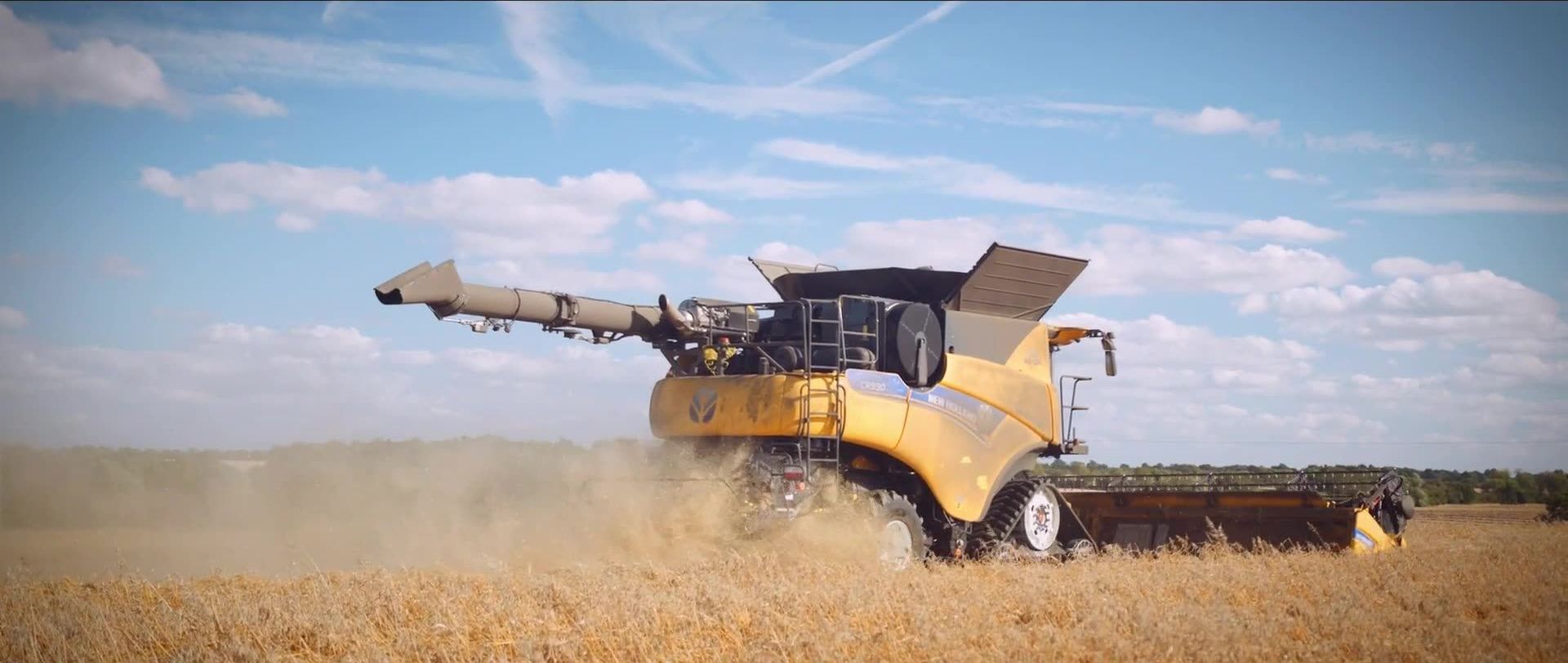Derek Wright is the Catering Services Manager for Blackpool Council. He sits on the Love British Food Schools Working Group. His team won the Public Sector Catering Awards Team of the Year in 2021 and in 2020 they were awarded Bronze Food for Life; they are aiming for silver now!

Why did you agree to sit on the new Love British Food Schools Working Group?
The Love British Food Schools Working Group is a brilliant initiative. It gets to the core of the business. It is refreshing that those in the group are from the food industry. When you hear the likes of Jamie Oliver talking about school meals, which is so far distanced from what is happening within the school environment, it's incredibly disheartening, so it is great to have a campaign that is at the heart of the industry. Even the levelling up paper is far away from the sector's reality; however, it's a start at tackling school food issues.
My responsibilities at Blackpool Catering Services
I have worked with the team at Blackpool Catering Services since 2015 and became Catering Services Manager in late 2019. As a service, we are very proud of our changes to the catering operation whilst working in partnership with Blackpool schools. During this time, we have gone from operating 11 sites to 34.(in meals numbers, this is from less than 30,000 meals a month to over 135,000 meals a month across 32 school sites and 2 community cafes.)
The team also oversees Blackpool's Free School Breakfast Scheme and Free School Milk to over 11,000 pupils per day as a Local Authority we have grown. We know that school food is crucial to the development of our young people in Blackpool to improve their nutrition and health. We have one of the highest school FSM rates in the town in the country, and every meal counts.
During the pandemic, as a team we distributed 600,000 meals through an emergency distribution centre. It was a very proud moment working across the council to make a real difference to our community. Working with Local Suppliers we mobilised this in less than 24 hours sending out food parcels, free school meals or packages across the town.
As Chefs and Cooks, we know that all dishes starts with the ingredients and we have proudly gained our Bronze Food for Life status and have taken part in the UK Food Foundations Peas Please Pledge increasing consumption of vegetables by 10%.
Emerging from a pandemic, we could see around us the local hospitality and tourism economy was suffering especially from the shortage of chefs but we also knew that there were young people who were not engaged in mainstream education and as part of our mission, we wanted a sustainable approach to improve education and employment so the Chefs Academy was born.
Last year the team and I was very proud to win the Public Sector Catering Awards Team of the Year 2021. It represented the hard work of the Catering Team and the Journey the Services has been on in such a short space of time.
What has inspired you to source locally?
Growing up in the Fylde the countryside was always busy with the farming calendar from lambing in the spring to the bailing of grass and harvest season all working to provide food in our regions and what better way to celebrate the produce than to cook with it!
I was lucky to find my love of cooking early on in life, from a work placement from School at Preston North End (PNE) with Paul Heathcote's Team where I met some fantastic chefs. From that point, I knew what I wanted to do after school. In year 10 or 11 I decided to go to catering college one day a week instead of a GCSE.
From there I went back to college full time to Preston College where I was taught by a fantastic team of tutors. In my first year, I was very lucky to work at Royal Ascot as a student. This is where is met Steve Golding, the Ascot Executive Chef who tapped me on the shoulder and offered me a full-time job after I left college.
I loved every minute of my at Ascot, I had some fantastic experiences including cooking breakfast for Duke and Duchess of Devonshire to working in the Her Majesty's Representatives Box. When working with the team at Ascot, produce and ingredients were key and this was always taken into consideration when menu planning.
While at Ascot I completed my NVQ Level 3 at Westminster College and won Apprentice of the Year from the Craft Guild of Chefs. There were so many fantastic events and experiences while working for Steve and the Team but it was time to come back up North so, I went to work in Cumbria in 2009 for a hotel. From there, one of my former tutors asked me to help teach in the college. This is what got me into education; wanting to make a difference for young people.
So I have had an interesting journey from Royal Ascot to the 2012 Olympics where I also worked and then finding my way into education. I have also had a little stint doing catering for the military. But working for Blackpool Catering Services is by far the most rewarding thing I have done as you are making a difference every day in young people's lives.
What is the farming and producer hinterland around the school?
I grew up in the Lancashire farming community in Fylde just 10 minutes from Blackpool. It is an area with lots of livestock farming with a mix of arable farming mainly potatoes. I grew up on an old pig farm down the road from the local dairy farm so as a child, I spent a lot of time on the farm next door who was mainly a dairy farmer and sheep farmer.
Lancashire is a fantastic county for produce and local ingredients and a lot of farms produce on our doorstep from fantastic local meats to potatoes, local dairies and cheese producers, tomatoes… if it is in season, we can get it locally.
Of course, we need to buy stuff that can match our volume requirements but if you write your menus right it is doable.
How have you achieved it?
The amount of meals we do and the partnership with schools is key to all we do.
It has been about improving quality across every aspect, including up-skilling the staff. But every meal starts with the ingredients. If you are in a county like Lancashire, with all this wonderful produce around us it is all possible. Every caterer should be using the food around them. We have learned during the pandemic how a short supply chain is good for us; fewer delays, fewer product issues. And it is key that we have the best ingredients; it is better for the children.
How did you start sourcing locally?
We started with things that we could change easily…yoghurt, dairy, eggs. Once we started it all became so easy. For example, we used to buy frozen veg but talking to suppliers we found we could buy in fresh and better quality for the same price. Instead of relying on big supply chains, we started to speak to suppliers directly and see what they had in their warehouses. We looked out there. You have to look to find something else. For our meat, we use a butcher in Blackpool and other butchers in Lancashire.
Everything we put on the plate has to have a high nutritional value. For most young people it is the only nutritious meal or only meal they have that day. Some young people do not even get a meal at the weekend. We should not be seen as a money-making service. We are a welfare service providing the very best school meal we can supply on that day.
Lessons learnt and hot tips
- Don't try and change everything at once. Start with small things, like veg. For example, one of our things has been moving from frozen potatoes to fresh and preparing them in the kitchen. It is all about small and often changes and improvements. Don't change too much in one go, your suppliers won't keep up with it. Bring products onboard in a systematic way so you know you have the skillset and capacity in kitchens and suppliers can keep up.
- Be conscious about skill set in the kitchen: We have changed our sauces to homemade. I call this 'health by stealth' so we get as many nutrients as possible into children by stealth. Our sauces are key to this. All our pasta and curry sauces are now homemade. But our cooks and chefs had become reliant on packaged sauces and had lost the skills to make them from scratch. So when you make changes, you need to think about building skills before you change things. It is also so important that recipes are correct.
- Go out and look for suppliers within your towns, within your county. Go and talk to your local dairy, your local farm shop. Go and find out from them what they can do and bring it back into your procurement team. You need to go out and search and talk to people. A lot of my friends work on farms. Talk to your wholesaler and ask them to put you in touch with the right people. It is about getting to know your local supply network.
What is stopping other school caterers from doing this?
Nothing stops schools from buying local produce however, the procurement process can slow things down we have to prove the best value but the best value is not just about price it's about the quality of the product to quality must be comparable when comparing price.
We also must think about continuity and sustainability within our supply chains to ensure we have consistent menus but not being afraid to use our skills as Chefs and Cooks to adapt and change to the circumstances and seasons.
It is frustrating that the Government is asking farmers to produce food to high standards but when they let out procurement contracts it is all about price.
If we are asking farmers to produce to a high standard, we need to be prepared to pay for this standard.
Name check some of the producers you use
There are so many…
Roger at Ribble Farm does all our veg. He is a great character. Very well known within the county!
Trevors Food Service…we work closely with Matthew the son. They are great guys. They will look out for us. They have helped us make sure that even the crisps in the café are Lancashire crisps!
We use a superb bakery, Morris Bakers, from Chorley.
Our meat, we try and buy as much as possible locally. We buy through Trevors. Our butcher, Choice Meat, delivers to Trevors. So when Trevors' wagons go round, they deliver our meat at the same time.
Who else do you admire in the industry?
So many other local authorities and independent schools are doing so much up and down the country, there are many good examples. I take a lot of inspiration from the chefs and producers around the country. It is a shame that social media only highlights the bad ones! I am quite young in the industry. I am only 34. But I now sit on the LACA Board representing the North West and hope the industry continues to change for the better while championing local produce.
What more do you want to achieve?
I never thought we would be where we are now. It would be good to change the image of school food and get the conversations going this year about how to reform it. The Government should be encouraging local suppliers. It is so good to get involved in the national conversation and also to be involved in the Levelling Up agenda.
Share:
You may also be interested in...

















